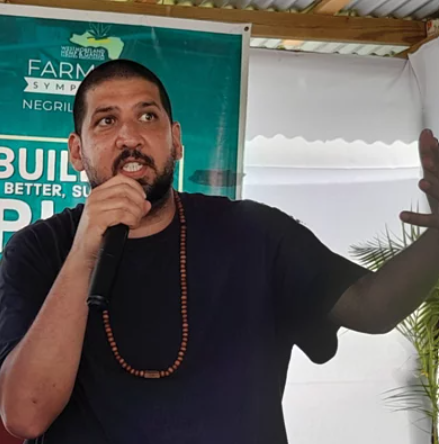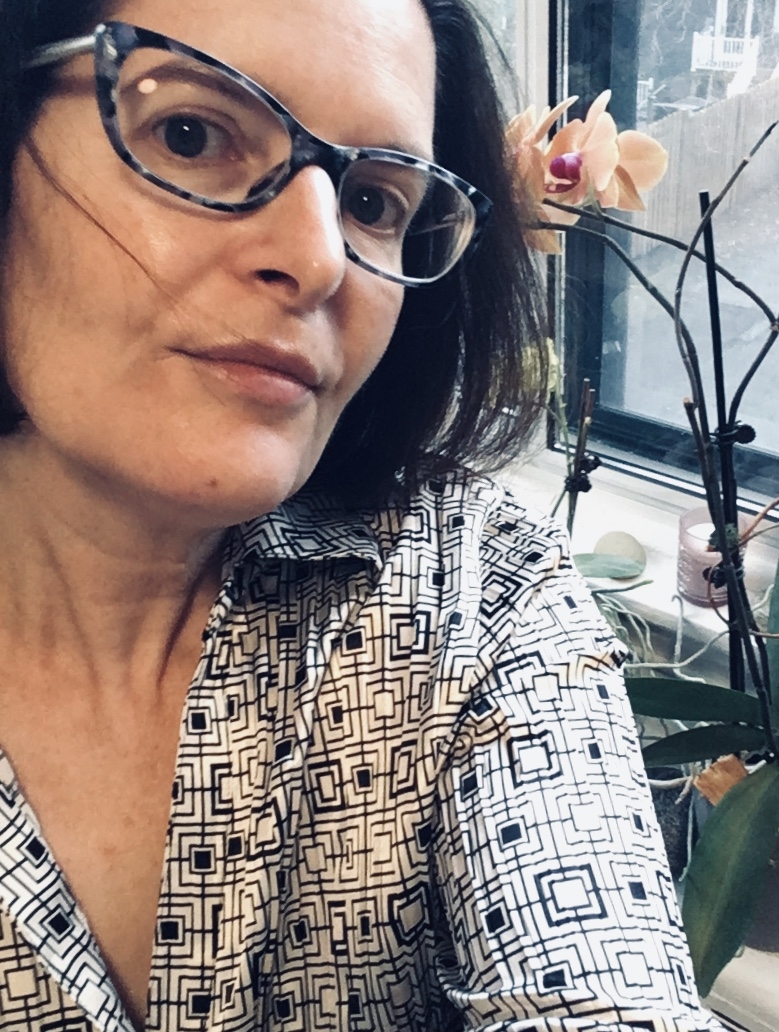CAR120Y1 - Introduction to Caribbean Studies

Instructor Bio:
Kevin Edmonds is an Assistant Professor of Community Engaged Learning and Caribbean Studies (Teaching Stream) at the University of Toronto. He received his PhD in political science from the University of Toronto, specializing in Caribbean political economy, community histories of alternative/illicit development, foreign intervention and the region’s radical political tradition. His publications include “Beyond Racial Capitalism: Cooperatives in the African Diaspora” (co-authored with Caroline Shenaz Hosein and Sharon Austin), “Guns, Gangs and Garrison Communities in the Politics of Jamaica at the Turn of the Century”, and “Beyond Good Intentions: The Structural Limitations of NGOs in Haiti“. He also has extensive experience organizing with several grassroots organizations within the Caribbean as well as with Toronto’s Caribbean community.
What makes this course unique?
It's a place for students to learn while building community. It combines eye opening lectures, class discussions, guest speakers, field trips with a community research project which documents the history of the Caribbean community in Toronto.
Assessment Type (Disclaimer: These are subject to change):
Engagement & Participation (First Term) 12.5%
Engagement & Participation (Second Term) 12.5%
First Group Meeting, Preliminary Research & Drafting of Interview Questions 10%
First Term Test 15%
Community Archival Project 20%
Community Presentation 10%
Final Assignment 20%
Student Feedback:
"Prof. Edmonds was an amazing instructor who explained concepts well and cultivated an environment for students to discuss course content. He allowed us to connect with the Caribbean community through our research projects and by doing a walking tour, where we could see how the history we were learning connects to our current lives. He made connections to modern–day occurrences throughout his lectures, allowing students to connect with course concepts and helping students feel engaged. He was also approachable and welcomed creativity in our assignments so that we could all feel engaged in the course. Overall, he was an amazing instructor, and I learned a lot from him!"
"Kevin was probably the most helpful professor I've ever had during my undergraduate career. From helping us think through our ideas, giving helpful feedback, being willing to connect us with the right people to talk to and even helping us source video/audio equipment. His commitment to ensuring all students are successful and actually enjoy the content they are engaging in was evident, and his expert knowledge in the field was super valuable too."
CAR220H1 - Comparative Caribbean Literature

Instructor Bio:
Catia Dignard holds a PhD in Spanish from the University of Toronto. Her doctoral dissertation, Linguistic Representations of Racialized Voices in Modern and Contemporary Cuban Fiction (U of T, 2025) examines linguistic portrayals of Black characters since colonial times with focus on post-Soviet fiction, and how these reflect evolving notions of nationhood, class, and race relations on the Island. Catia has previously coordinated student cultural exchanges in Nicaragua, Cuba and Italy as an Economics and Intercultural Studies professor while living in the province of Québec. At U of T, she has taught Spanish with the Department of Spanish and Portuguese, as well as Caribbean Regionalism and Comparative Caribbean Literature at the Centre for Caribbean Studies. In addition to her academic work, Catia is a jazz and folk singer-songwriter, who’s past musical projects have included collaborations with Cuban artists and writers.
What makes this course unique?
This course opens a space of discussion on the broader topic of "what it means to inhabit the Caribbean" in regional and diasporic contexts. Students are encouraged to actively engage with the course materials and share their critical insight with their peers during class discussions and group presentations. These discussions are enriched by the presence of invited speakers in class and/or public readings organized by the Centre for Caribbean Studies. This semester, we will have the pleasure of attending the reading of the recently published novel, Paradise Once, with Jamaican writer Olive Senior, as part of the Forum for Caribbean Writers and Readers.
Assessment Type (**Disclaimer: These are subject to change**):
Presentation 20%
Conference and documentary commentary/report 15%
Two (2) Reading Response Papers (2 pages each) 20%
Final Paper Presentation and Group Discussion 5% + Paper 30%
Attendance, participation 10%
Student Feedback:
"I really felt grateful for the opportunity to experience Professor Dignard's course. First, she gave us an excellent survey of some of the most influential Caribbean writers: she provided us with many interesting perspectives about their work, notably in terms of the language and literary devices they used, but also in terms of the unique historical context they experienced as individuals.
Additionally, Professor Dignard was always very approachable outside of class and always pleased to help. Her course was truly meaningful to me."
CAR225H1 - Caribbean Societies

Instructor Bio:
Robert McConney is a PhD Candidate in the Department of Anthropology at the University of Toronto. He is a transnational scholar of the Caribbean and Persianate World. He holds BA Hons in History (University of Southampton, 2016); MA in Iranian Studies (University of Tehran, 2019); and MA in Religion (University of Toronto, 2023). His doctoral research relates to the observance of Hosay in Trinidad and Tobago, a variation of the Shi’a tradition of Muharram. His research is grounded in historical anthropology and considers questions of religious transnationalism, materiality and semiotics, and genealogies of anti-colonial thought. Over the past two years, he has facilitated a graduate-level reading group on Caribbean studies and has previously served as an academic instructor at Heriot-Watt University in Edinburgh.
What makes this course unique?
CAR225 gives students the opportunity to develop their own interests in Caribbean studies. The course examines residual and emergent social issues in the region, asking what the “social” means in the Caribbean—when, why, and for whom. Students will learn to ask focused questions in response to course readings, leading to the development of a research question on a topic of their choice that will form the basis of a final essay. The course is designed to help students build confidence in reading academic texts and steadily craft a clear, well-supported argument. Students in this course will also have a chance to participate in the Caribbean Studies Film Festival during the Fall semester, which complements the course’s themes and structure.
Assessment Type (**Disclaimer: These are subject to change**):
Weekly response questions (20%).
Class participation (20%).
Essay proposal (20%).
Final Essay (40%).
Optional extra credit: Response to films in Caribbean Studies Film Festival (5%).
Student Feedback:
“I think I wouldn't have been so engaged in course materials had it not been for Robert. He was very good at explaining course concepts while still engaging with students to see how we understand the course material. My courses are very overwhelming, so attending his classes to make sure I understood key concepts was well worth my time. I liked how in-depth Robert graded my assignments. His comments also let me reflect on my writing for other courses, and I believe I have been improving in my essays because of it.”
CAR316H1 - Caribbean Religions

Instructor Bio:
Bernardo García-Domínguez holds a PhD in Sociology. His doctoral dissertation, Transculturation in Cuba: A Study of Race, Religion and Revolution (York University, 2004) analyses specific issues of social, cultural and religious interactions. He is a founding member of Casa del Caribe, Cuba’s main research center for Caribbean Studies. García-Domínguez has lectured in Canada at York, Wilfrid Laurier, Brock, and OISE since 2003 and at New College since 2008. He is the author of El pensamiento vivo de Máximo Gómez (Casa del Caribe, Santiago de Cuba, 1991; Editora Búho, Santo Domingo, 1992); and the Consulting Editor of the Encyclopedia of Caribbean Religions, University of Illinois, 2013.
What makes this course unique?
This course explores the complex and dynamic practices, philosophies and political and cultural contexts of Caribbean religions. Topics may include the profound impact - in both the Caribbean and its disporas - of Caribbean Christianities, Hinduism and Islam as well as Afro-Creole religions such as Vodun, Rastafari and Santeria.
Assessment Type (**Disclaimer: These are subject to change**):
Participation in Class 25%
Presentation in Class: 25%
Term Test 1: 12.5%
Term Test 2: 12.5%
Research Paper: 25%
Student Feedback:
"One of the most helpful and impactful professors I have had the privilege of being taught by."


 (3).jpg)